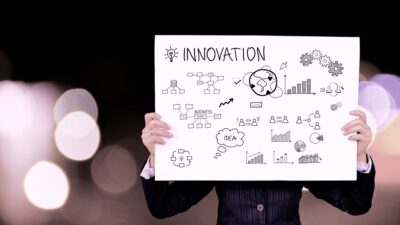In an era defined by rapid technological advancement and shifting consumer preferences, startups are emerging as crucial catalysts for change across various traditional industries. These agile organizations leverage innovation to challenge established norms, enhance efficiency, and redefine customer experiences. Exploring this phenomenon reveals not only the power of innovation but also the potential for comprehensive industry transformation.
The Startup Effect: Disruption in Action
1. Digital Transformation in Retail
Traditional retail has faced significant challenges due to the rise of e-commerce. Startups like Warby Parker and Glossier have effectively disrupted the market by creating seamless online experiences that prioritize customer engagement and personalization. Utilizing data analytics and social media, these companies have built brands that resonate with younger consumers. As a result, established retailers are forced to rethink their strategies and embrace digital transformation to remain relevant.
2. Revolutionizing Transportation
The transportation sector has undergone a transformation with the arrival of tech-driven startups. Companies like Uber and Lyft have redefined personal mobility, challenging conventional taxi services. These platforms not only offer convenience through app-based ride-hailing but also stimulate discussions on regulatory frameworks and urban infrastructure. As public transportation systems worldwide adapt to these changes, they face the challenge of integrating innovative solutions to meet growing urban demands.
3. Finance’s Fintech Revolution
The financial services industry has also witnessed a surge ofinnovative startup solutions, often referred to as fintech. Companies such as Square and Robinhood are providing consumers with unprecedented access to financial tools that empower them to manage money and investments. By simplifying complex financial processes and eliminating the need for brick-and-mortar banks, these startups are not only attracting younger demographics but also forcing traditional banks to innovate their services and enhance customer experiences.
4. Healthcare Reimagined
The healthcare sector is experiencing a major shift as startups like Teladoc and Oscar Health leverage technology to provide improved patient care. Telemedicine and digital health platforms are democratizing access to medical services, particularly in underserved areas. In response, established healthcare providers are integrating telehealth solutions into their offerings, recognizing the need to adapt to consumer expectations for convenience and accessibility.
Embracing Change: The Traditional Sector’s Response
1. Partnerships and Collaborations
Rather than viewing startups solely as competitors, many traditional organizations are embracing partnerships and collaborations. By leveraging the agility and innovative spirit of startups, established companies can enhance their own product offerings and streamline their operations. For example, automakers partner with tech startups to develop autonomous vehicle technology, ensuring they remain competitive as the industry evolves.
2. Intrapreneurship Initiatives
Traditional companies are also fostering cultures of intrapreneurship, encouraging employees to act like entrepreneurs within the organization. This approach can lead to innovative product development, drive efficiency, and enhance employee engagement. By nurturing intrapreneurs, companies can stay ahead of industry trends and adapt to the changing landscape.
The Road Ahead: Opportunities and Challenges
As startups continue to redefine traditional industries, they are also faced with a range of opportunities and challenges. Navigating regulatory landscapes, securing funding, and building sustainable business models are imperative for long-term success. Moreover, as industries become increasingly interconnected, startups must also consider the implications of their innovations on broader societal and environmental issues.
1. Sustainability and Ethical Practices
With growing consumer awareness regarding sustainability and ethical practices, startups are at the forefront of driving change. Industries such as fashion and food are seeing an influx of startups focused on eco-friendly products and transparent sourcing. By championing sustainable practices, these companies not only attract conscientious consumers but also push traditional businesses to align with a more sustainable future.
Conclusion
The power of innovation lies at the heart of the startup movement, driving profound changes across traditional industries. Startups are not just reshaping their respective sectors; they are challenging established business models, enhancing customer experiences, and encouraging broader societal shifts. As traditional companies recognize the necessity of adaptation and collaboration, the landscape of commerce will continue to evolve, fostering a dynamic relationship between innovation and tradition. Ultimately, the fusion of startup ingenuity with established industry knowledge holds the promise of a more resilient and responsive economy.



